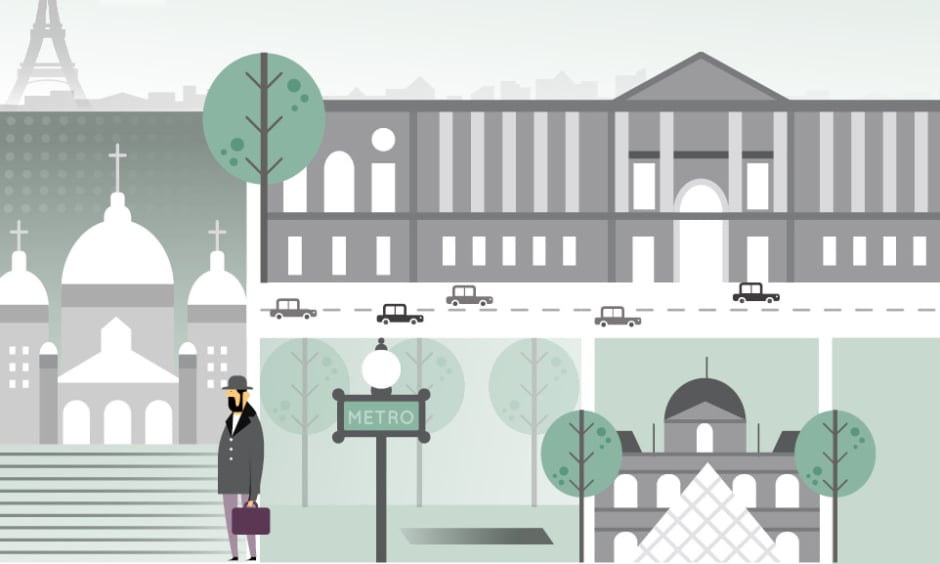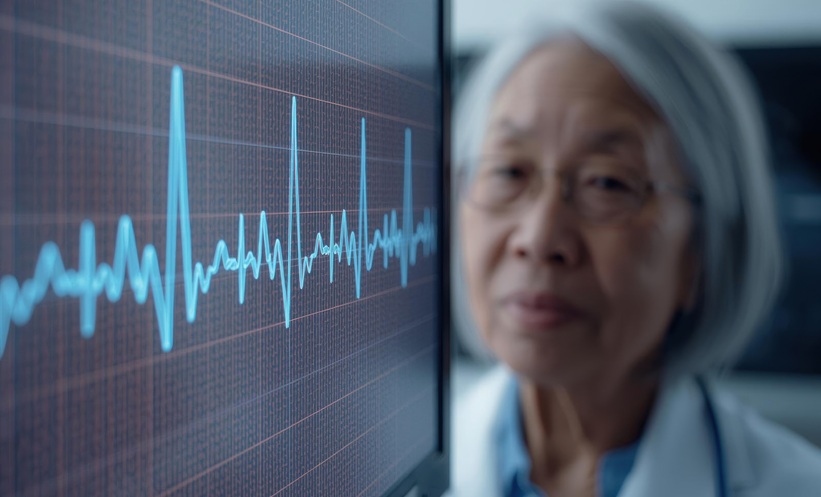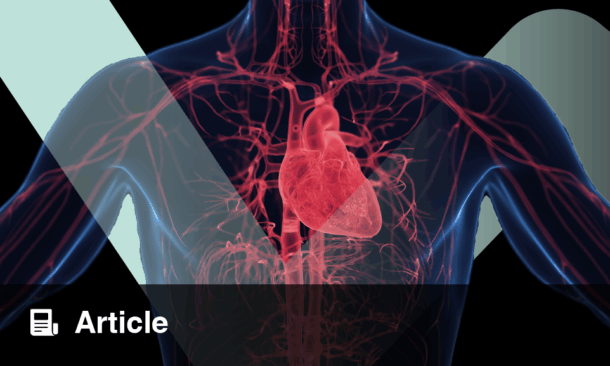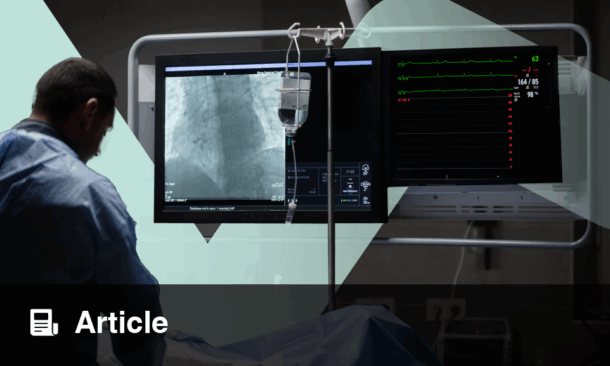Written by Dr Pablo Sepúlveda Varela | Hospital San Juan de Dios, Chile
![]()
During the EuroPCR 2018 Congress, we sat down with EMJ Interventional Cardiology Editorial Board member Dr Pablo Sepúlveda Varela to learn more about his thoughts and opinions of the congress so far. The importance of congress attendance and the most recent trial results presented at the event were discussed, as well as the impact of these outcomes on clinical practice in Dr Sepúlveda Varela’s home country of Chile.
Do you and your colleagues in Chile come to Europe often for congresses like this one?
Multiple times a year. Two-to-three times a year we come to the big events, like the European Society of Cardiology (ESC) Congress and EuroPCR, depending on where they are. Actually, from Chile right now, there are around 20 interventional cardiologists attending this congress, including fellows; it is a big delegation. There are not too many interventional cardiologists in Chile (around 65 actively practising), so having 20 leave the country at once is a big deal!
I also try to go to the Transcatheter Cardiovascular Therapeutics (TCT) congress in the USA, but I think the European conferences are much more comprehensive and can be better organised, although both European and American conferences are of high quality. Chile tends to follow the European guidelines a bit more, depending on the pathology you are looking at, although sometimes it is better to be more conservative, like in the USA. I think the European guidelines tend to change at a faster pace. Sometimes the scientific evidence is advancing really fast and you see the European societies grab that information; sometimes that is good, sometimes it is not. As an interventionalist, I am not conservative at all; you want to push things and I think this is more in-line with European guidelines. I cannot speak for all interventionalists in my country, but for me and my centre, we tend to look more towards Europe than to the USA. I also trained in Belgium, so perhaps that is why I am keen to visit the European events!
“That is something the interventional community shares all over the world: they like to share their complications openly, so that they can be criticised, and I think you learn from that criticism.”
Information from the SPYRAL and RADIANCE trials have just been released. What is your opinion on renal denervation for treating hypertension and do you think this will affect your current practice?
We adopted [renal denervation] very early, but then we got the data from the SYMPLICITY HTN-3 trial. Around that time, I was working in a centre in Santiago, Chile that was one of the first to adopt renal denervation, but when we saw the results of the first randomised trial with the sham procedure as control, we decided to stop the programme. Now, when you look at the data from RADIANCE and SPYRAL presented here at EuroPCR, it is really amazing and really encouraging, but I think we still have to wait a little bit due to the small number of patients treated and short follow-up with both devices. For the time being, our centre will not be getting involved, but we will see what happens. Let’s see where this second and third wave of research takes us. At least in my country, where there are cost issues involved, we have to wait; this is not the same for procedures like transcatheter aortic valve implantation or mitral valve treatment, where every day the treatment is growing more successful.
Are there any presentations that you have seen so far that you think will be of particular impact to your practice back home?
We tend to follow certain pathways when we come to this kind of congress. Of course, we have to report to our country when we come back and talk to our colleagues about the presentations we saw, but this tends to be about the hot topics, like the late-breaking clinical trials. But we do follow certain pathways in doing so. I am here with my fellows, so right now I am here in support of their presentation and clinical cases.
I also like to see the complications. There is a subset of presentations here, from all over the world, dealing with complications. When you see how they deal with problems and integrate innovation, you learn a lot. That is something the interventional community shares all over the world: they like to share their complications openly, so that they can be criticised, and I think you learn from that criticism.
“It is amazing that these huge venues have been replicating these live sessions from other countries. Even if you work in a small country like Chile, you can still participate in this sort of session.”
For me personally, I am following all the sessions and trials related to the tricuspid valve, the forgotten valve. Not many people really care about the tricuspid valve and I see that there is a future in that area not just for surgery but also for the interventionalist. We are getting some new devices that are being tested, and I will be interested to see if, in 2–3 years, it may be possible to implement these in my country. I do a lot of right heart catheterisation and I am involved with pulmonary hypertension, so I see patients with tricuspid regurgitation. I see a lot of growing interest every year in this area of pathology, so this is something I will be following at this year’s EuroPCR.
A live session, broadcast from Bahrain, was on show immediately after the Opening Ceremony. What did you make of this broadcast?
Ah yes! I was there. It was excellent. Really interesting.
The congress involves professionals from many countries all over the world. Is this type of surgical broadcast common in the interventional community or is it reserved for major meetings like this?
These sessions are amazing. It is amazing that these huge venues have been replicating these live sessions from other countries. Even if you work in a small country like Chile, you can still participate in this sort of session. It is also interesting that, when I came to this meeting around 10–15 years ago, when I was a fellow, I remember seeing this complex live case and learning a lot, but now, while there are still complex cases, it no longer feels new to me! As you grow in your profession, you continue to learn every day and when you see these cases you say: “Okay, I would do more or less what the interventionalist is doing now,” or “Maybe I would change this or that.” It is amazing how when you see a live case (not a prepared or pre-recorded case), they face the same complications all over the world, with the same materials, the same catheters, etc. Cost may represent a barrier for certain elements, but technique, the way they select the patient, and the complaints that the patients refer to are all universal. It is amazing that in Bahrain, France, and London, they all approach the patient in mostly the same way. This is very reassuring when you come from a less developed country with more limitations and less access to this kind of first-world medicine.
When you come to events like EuroPCR, do you plan in advance what sessions you will attend?
Yes, you have to plan before you come here. The final programme is available maybe a month before, and then you have the congress app, so you can input the sessions into your schedule. As I told you, I try to follow a pathway. You cannot go to every session, so you must say to yourself: “Okay, this year I am going to go to the structural cases, I am going to see mitral valve sessions, aortic valve sessions. This year I am looking for tricuspid valve sessions, next year I will look for complex coronary interventions, etc.” Sometimes, these sessions are already organised as a discrete pathway, but if you do not have that premade pathway available then you try to select your own. For me, it is a mixture of live cases, learning sessions that I attend with my fellows, and two or three topics where you try to grab the latest breakthroughs.
EuroPCR represents a huge opportunity for networking. What do you get up to with your fellows and international colleagues while at the event?
This is key. Nowadays, it is not like it was 20 years ago. You do not need to go to the congress to get the information, everything is online: the live sessions, summaries of the congress; you can pay to have a session made available to you. But what you need to come to the congress for, of course, is to interact with colleagues from all over the world and to network. Look at what we are doing right now! We could have this chat online, but it is not the same. You interact, you get involved with colleagues from other groups, you start planning trials, you get in touch with other investigators to get involved in their trials, and you show what you have to offer: your centre, your university, your patients. And of course, there is time to go out also with your colleagues, have dinner, have a chat. It is amazing that sometimes you need to get out of your country, out of your city, out of your workplace, in order to see your colleagues in a social fashion!








